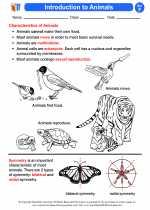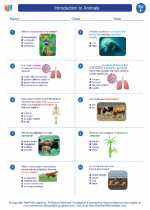Thyroid: An Overview
The thyroid is a small, butterfly-shaped gland located in the front of the neck, just below the Adam's apple. It is a crucial part of the endocrine system, which is responsible for producing and regulating hormones that control various bodily functions.
Anatomy of the Thyroid
The thyroid gland is composed of two lobes connected by a narrow band of tissue called the isthmus. Each lobe is about the size of a small plum and is situated on either side of the windpipe (trachea).
Function of the Thyroid
The primary function of the thyroid gland is to produce and release hormones that regulate the body's metabolism, which is the process of converting food into energy. The two main hormones produced by the thyroid are thyroxine (T4) and triiodothyronine (T3).
Regulation of Thyroid Hormones
The production and release of thyroid hormones are controlled by the pituitary gland, a pea-sized gland located at the base of the brain. The pituitary gland secretes thyroid-stimulating hormone (TSH), which signals the thyroid to produce and release T3 and T4.
Common Thyroid Disorders
There are several disorders that can affect the thyroid gland, including:
- Hypothyroidism: A condition in which the thyroid gland does not produce enough hormones, leading to symptoms such as fatigue, weight gain, and cold intolerance.
- Hyperthyroidism: A condition in which the thyroid gland produces an excess of hormones, resulting in symptoms such as weight loss, rapid heart rate, and heat intolerance.
- Goiter: Enlargement of the thyroid gland, often due to iodine deficiency or other underlying conditions.
- Thyroid nodules: Abnormal growths or lumps within the thyroid gland, which can be benign or malignant.
Diagnostic Tests for Thyroid Disorders
Doctors may use various tests to assess thyroid function and diagnose disorders, including:
- Thyroid function tests: Blood tests to measure levels of TSH, T3, and T4.
- Ultrasound: Imaging technique to visualize the thyroid gland and detect abnormalities such as nodules or enlargement.
- Thyroid scan: Nuclear medicine imaging to assess the structure and function of the thyroid gland.
- Biopsy: Removal of a small tissue sample from the thyroid for examination under a microscope.
Healthy Habits for Thyroid Health
Maintaining a healthy lifestyle can support thyroid function. This includes consuming a balanced diet rich in iodine, selenium, and other essential nutrients, as well as regular exercise and stress management.
Summary
The thyroid gland plays a critical role in regulating metabolism and overall bodily function through the production of hormones. Understanding the anatomy, function, and common disorders of the thyroid is important for maintaining overall health and well-being.
[Thyroid] Related Worksheets and Study Guides:
.◂Science Worksheets and Study Guides Sixth Grade. Introduction to Animals

 Activity Lesson
Activity Lesson
 Worksheet/Answer key
Worksheet/Answer key
 Worksheet/Answer key
Worksheet/Answer key
 Worksheet/Answer key
Worksheet/Answer key
 Vocabulary/Answer key
Vocabulary/Answer key
 Vocabulary/Answer key
Vocabulary/Answer key
 Vocabulary/Answer key
Vocabulary/Answer key
 Vocabulary/Answer key
Vocabulary/Answer key
